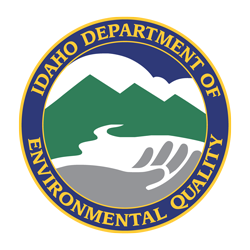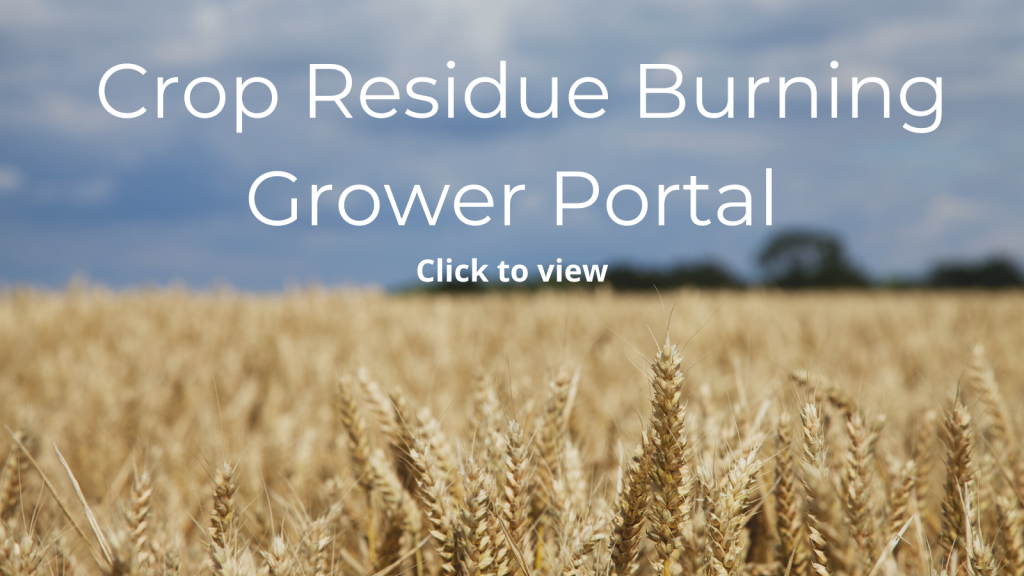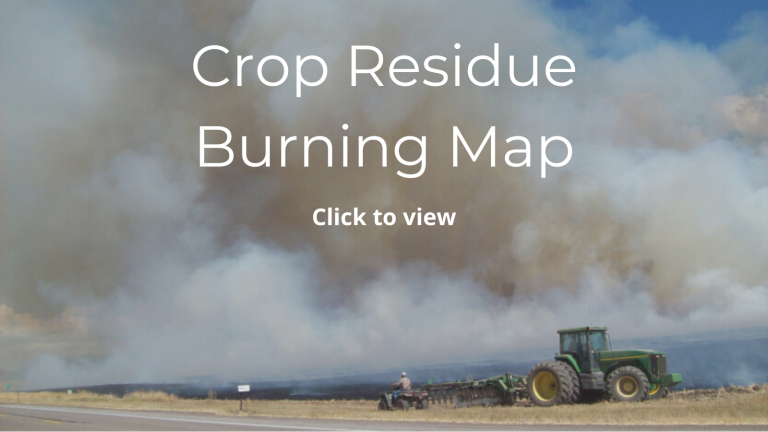Crop residue is vegetative material remaining in the field after harvest. Burning crop residue in a controlled manner can improve crop yields, decrease herbicide and pesticide use, and control disease, weeds, and pests.
DEQ’s Crop Residue Burning (CRB) program is designed to protect public health while allowing growers to burn under certain conditions. The program is managed by DEQ on lands other than Indian reservations in Idaho. DEQ implements the CRB program for the Kootenai Tribe of Idaho through a Memorandum of Understanding.
Most agricultural burning requires a permit under DEQ’s CRB program.
DEQ ensures smoke from approved burns does not adversely impact institutions with sensitive populations, which includes public schools while in session, hospitals, residential health care facilities for children, the elderly or infirm, and other institutions with sensitive populations as approved by DEQ.
Institutions wishing to become a recognized institution with sensitive populations under the CRB program should submit a request as described in the Policy on Reviewing a Request for Institution with Sensitive Population Status for the CRB Program.
CRB Grower Hotline (208) 373-0332 or toll-free at (866) 224-2456
Smoke Complaint Hotline and Burn Decision Information (800) 345-1007
Contact a DEQ regional office nearest you.
Subscribe at the bottom of this page for daily burn decision updates.
Permit Required Under Crop Residue Burning
- Whole or part of an agricultural field
- Broken bales in field where harvested
- Pastures
- CRP and Conservation Reserve Enhancement Program lands
- Food plots
- Propane flaming operations
No Permit Required*
- Weeds along fence lines, ditch banks, and irrigation canals
- Orchard clippings
- Weeds within a rock pile within a field
*These activities are regulated but do not require a permit. See Can I Burn for burning information.
Grower Online Portal
Growers can use the online portal to register their fields, request to burn, submit their postburn reports, and pay fees. Log in to the online portal.
Grower Training
Growers must complete this training every 5 years online or at a DEQ regional office.
Click here to take the Grower Training. The training works best in Google Chrome, Mozilla Firefox, or Internet Explorer 10.
Fire Safety Burn Permits
DEQ’s CRB program online portal is linked with the Idaho Department of Land’s (IDL) fire safety permits system. Growers are issued an IDL fire safety permit for crop residue burning through DEQ’s online portal when available.
For questions about fire safety permits, contact IDL at (866) 581-6498.
Smoke Management
Procedures must be followed by growers to mitigate smoke from crop residue burning.
The following permits are issued under the CRB program.
Crop Residue Burn Permit
A crop residue burn permit is required for burning areas larger than 1 acre per day.
Spot and Bale Burn Permit
A spot and bale burn permit is intended for burning areas within a field or pasture of less than 1 acre and broken bales of less than 2 tons per day. A total of 10 acres per year is allowed to be burned under a single spot and bale permit.
Propane Flaming Permit
The propane flaming permit is intended for fields with little residue where the objective is to heat the ground to kill weeds and pests.



